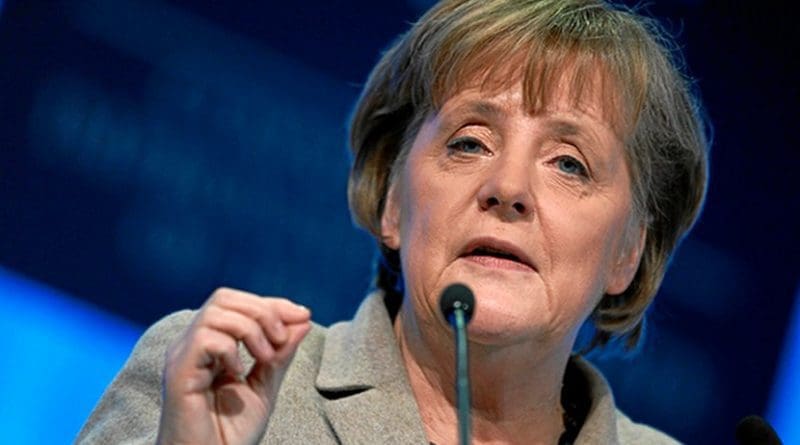Significance Of German Chancellor Angela Merkel’s China Visit – OpEd
On a day when a Berlin zoo was celebrating the birth of twin panda cubs born to two giant pandas, which China loaned to Germany as a symbol of close ties, Beijing-Berlin relations also dominated the headlines for other reasons. Seemingly, China’s panda diplomacy has born fruitful results as the German Chancellor Angela Merkel confirmed her two-day China visit at the invitation of Chinese Premier Li Keqiang. Amid the US-initiated trade war with China, which is unremittingly escalating, this visit scheduled on September 6 and 7 has both economic and bilateral significance.
China’s primarily stable economy had to endure mild tremors as a result of the US’ unreasonable tariffs on US$550 billion worth of Chinese goods. However, experts boost confidence that be it the slipping value of the Chinese yuan or sudden jolts to the country’s GDP growth they are all temporary.
China’s economy is capable of handling the blows and can rebound fiercely. Perhaps rightly so, as often snippets of everyday life echoes the larger picture. Startling sights of swarms of customers thronging Costco’s Shanghai outlet on its first business day was a glimpse of why China is an economic powerhouse. Besides, the country’s manufacturing sector already soared to a five-month high in August – despite the latest leg of tariff imposition – gives another sign of China’s resilience.
Merkel is expected to be accompanied by an entourage of business executives including some heavyweight German CEOs and they will certainly anticipate cracking some agreements during this visit. From China’s point of view this delegation is vital as Washington’s incessant bullying has compelled Beijing mull for alternative trade partners. China strode on this utter gutsy path by halting soybean imports from the US and approving wheat and soy imports from Russia, back in July this year. Thus, if China can seal important deals with Berlin, it will certainly be seen as another step closer to the US’ alternative.
However, it will be wrong to presume that given China’s fall out with the Trump administration, it gives leverage to Berlin over China. The grass isn’t greener on the German side too! It may be worthwhile mentioning off late Germany has been experiencing negative economic growth. As per August 2019 data from the German National Statistics Office, the country’s GDP growth has dampened down by 0.4 % and amid a global slowdown, the risk of a further plunge persists. Thus, this visit will also provide an opportunity for Merkel to get down to business.
From the bilateral perspective, this visit sends a resounding message to the Trump administration that Washington’s constant lobbying to persuade major European powers to corner China has fallen flat. While there might have been a share of turbulence between Berlin and Beijing, let’s not forget during Chinese vice premier Wang Qishan’s Berlin visit back in May this year both the countries unequivocally criticized the US’ pressure tactics on Iran.
Thus, be it US’ meddling in the ongoing Hong Kong unrest or its historical vestiges of interference in the internal affairs of other countries, both Berlin and Beijing are well acquainted with the US being a champion in stirring tension. Furthermore, both the countries on previous occasions opposed to US’ unilateralism. This implies that some issues bring both China and Germany on the same page and the German chancellor’s visit will further open more gates of cooperation.
What transpires inside the closed corridors of power during this visit is highly unpredictable but things look greatly assertive at the moment. Meanwhile, much of the onus also lies with Berlin. Things had previously strained after a greater level of scrutiny was placed for China by Germany in technology transfers.
Now, it will be paramount for this relation to not concede to any external pressure and go by what’s right. Exclusion of Chinese communication giant, Huawei from participating in Germany’s 5G rollout, will only deprive or delay Germany from being a part of tech modernization. After all, there’s no denying that China is on its quest to be the epicenter of the global powerhouse and stronger ties with China will only yield benefits. Merkel visited China 11 times since being elected to the helm of German leadership which elicits the significance of its partnership with China. Therefore, this trip of the German chancellor can unquestionably steer their bilateral and economic ties to the shores of productivity and profit.
*Shamim Zakaria is a Beijing-based journalist and author currently working as Foreign Editor of Global Times, China. He can be reached via www.shamimzakaria.com

